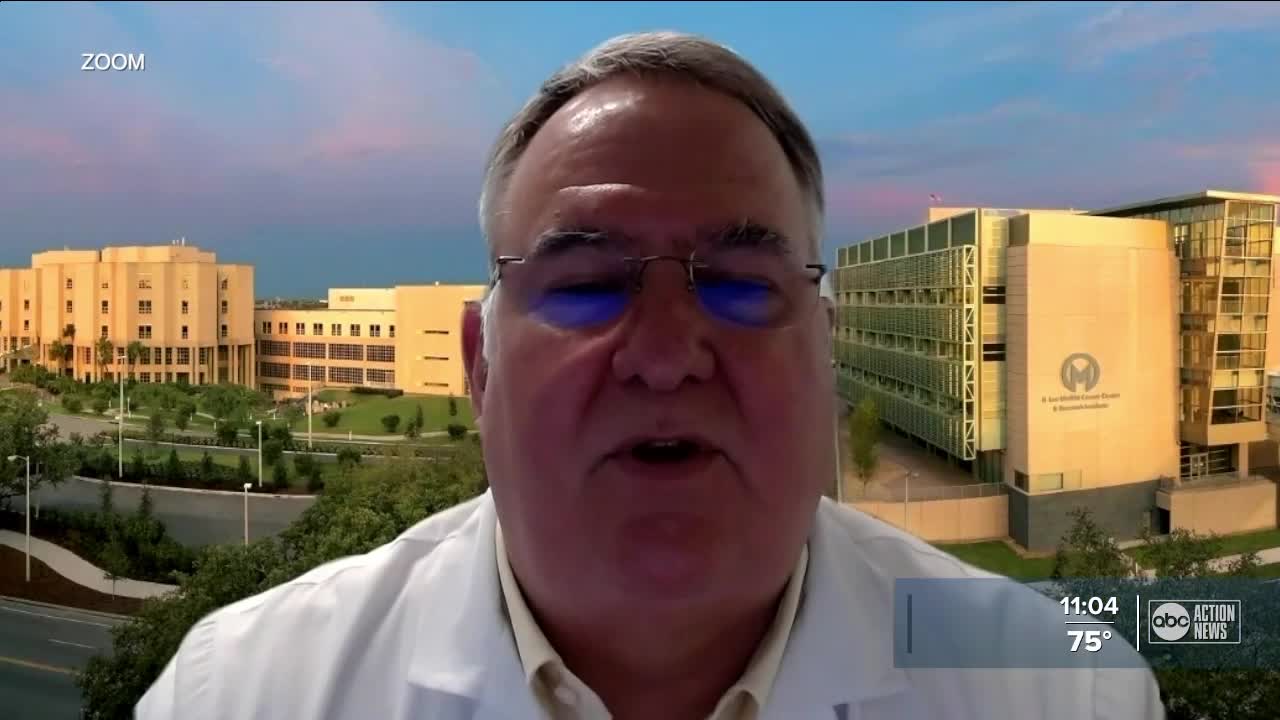A CDC advisory panel debated possible next steps in the administration of the Johnson & Johnson COVID-19 vaccine, and after hours of questions and presentations, decided Wednesday they wanted more information about the rare instances of blood clots to make a recommendation.
The Advisory Committee on Immunization Practices (ACIP) held an emergency meeting Wednesday afternoon to review what is known about the six reported U.S. cases of a rare and severe type of blood clot in people after getting the J&J vaccine. As of Monday, nearly seven million doses of the J&J vaccine had been administered in the U.S.
ABC Action News spoke to USF Health's Dr. Michael Teng regarding the importance of the emergency meeting.
"We’ve had so much trouble making sure that people trust the vaccines. Making sure people trust government and healthcare, that this is important to establish trust that these things are taken seriously," said Dr. Teng. "It’s this really rare thing, but if we didn’t pause, and someone got the vaccine and then all of a sudden got this clotting factor and died from it, then what right? Then you could have done something, but you didn’t. That’s much worse than trying to come back out and message to try and get people to understand that the vaccine, because it was paused, because we figured out what was going on, now we know that it's safe or that the risks are so much less than the potential benefit.”
During Wednesday afternoon’s meeting, many experts shared that there is just not enough information known about the cases of blood clots and what may have caused them, instead wanting more information on the risks and benefits.
The ACIP members debated whether there should be a longer pause on administering the Johnson & Johnson vaccine, and if they had enough information to make interim age or risk factor based recommendations for this vaccine.
The CDC and FDA are investigating the reported cases of blood clots. On Tuesday, they recommended a pause on using the Johnson & Johnson COVID-19 vaccine “out of an abundance of caution," while also noting right now, the cases appear extremely rare.
The six cases were all reported in women, between the ages of 18 and 48 years old. Health officials continue to look into what other similarities there may be between the patients. Symptoms happened six to 13 days after receiving the one-shot vaccine.
The ACIP provides advice and guidance regarding use of vaccines for control of vaccine-preventable diseases in the civilian population of the United States. The group's recommendations are reviewed by the CDC director. They also made recommendations to the CDC on each of the COVID-19 vaccines approved for emergency use.
The group indicated it would try to find time to reconvene quickly and that they could possibly meet again in a week to ten days.
Florida said the pause impacts federally supported vaccine sites, homebound vaccination and mobile vaccine clinics.
While the Florida Division of Emergency Management said it was able to transition some homebound vaccines to Pfizer, mobile vaccination events are canceled through Saturday. It released this statement:
"At this time, the state is continuing to pause all mobile vaccination events. After reviewing current supply, the state does not have enough Pfizer or Moderna vaccines to continue these events at the same capacity for this week. At this time, all mobile vaccination events are canceled through Saturday, April 17.
In the event the state does not receive further guidance from the CDC and the FDA by the end of this week, the state is preparing for next week’s allocation and determining how to supplement these efforts with Pfizer and Moderna. The state is reviewing all available options and will make adjustments to the state’s allocation supply as necessary.
These mobile vaccination events are a critical tool in Florida’s vaccination efforts. The state remains committed to ensuring these events can continue. These events assist in reaching underserved communities statewide and increasing vaccine access to all Floridians.
However, we continue to encourage Floridians to visit a state-supported vaccination site while we await further guidance from the federal government. State-supported vaccination sites welcome walk-ups and most are open daily. A full list of state-supported vaccination sites and their hours of operations is available at FloridaDisaster.org/Vaccine."




